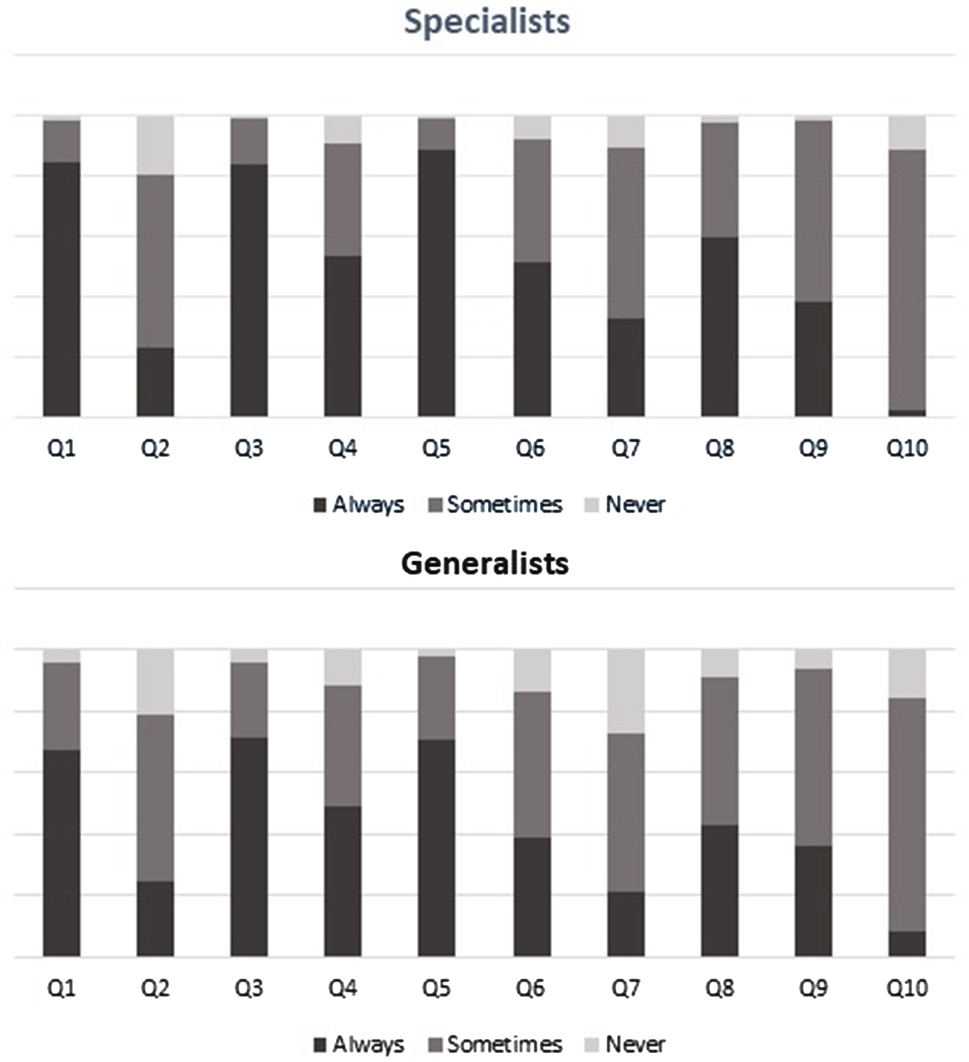It is estimated that 60% of all people living with dementia today reside in low and middle-income countries like those in Latin America, and this proportion is expected to increase (World Alzheimer Report 2015). Unfortunately, physicians seem to have a poor knowledge about this condition (Richly et al., Reference Richly2018), and this may impact their approach to subjects with dementia (Jacinto et al., Reference Jacinto2016).
This study was a descriptive and cross-sectional study aimed to investigate physicians’ approaches to dementia in Latin America. Participants were medical doctors recruited by a banner at the IntraMed home page (the largest online Spanish-speaking medical community), which invited them to voluntarily access an online questionnaire regarding dementia care. All statistical analyses were conducted using the IBM-SPSS 19.0 package.
The subjects were grouped in three different categories: specialists (neurologists, psychiatrists, and geriatricians), generalists (general practitioners, family physicians, and internal medicine specialists) and others. Only generalists (n = 620) and specialists (n = 432) were included in the analysis (Figure 1). No differences were found in age or sex within both groups.

Figure 1. How medics approach subjects with dementia in their practice.
Specialist were more likely to let the family participate in the interview (sig = 0.001) and share with them the diagnosis than generalists (sig = 0.001). However, neither of them frequently disclosed the diagnosis with the subjects (sig = 0.941) or discussed with them about advance care directives on a regular basis (sig = 0.110).
Also, generalists were less likely to provide the family with tips on how to manage everyday issues related to dementia (sig = 0.001) or give guidance regarding social security strategies than specialists (sig = 0.001). Even though specialists were more likely to consider themselves as the patient’s “case manager” (sig = 0.001) or discuss long-term care plans (sig = 0.001) than generalists, only one-third did so. There were no relevant differences between the two groups regarding the suggestions about a formal caregiver (sig = 0.104) or institutionalization (sig = 0.759).
The findings of this study are a warning sign about the relevance of a competence-based education program, rather than focusing only in disease knowledge. Latin American physicians are lacking not only information about dementia, but also the skills and commitment to help patients and families to deal with this life-changing condition. It is likely that this could be better tackled by public programs with a community perspective, and therefore, government involvement would be necessary (Manes et al., Reference Manes2016).
Conflict of Interest
All the authors declare no conflict of interest.





